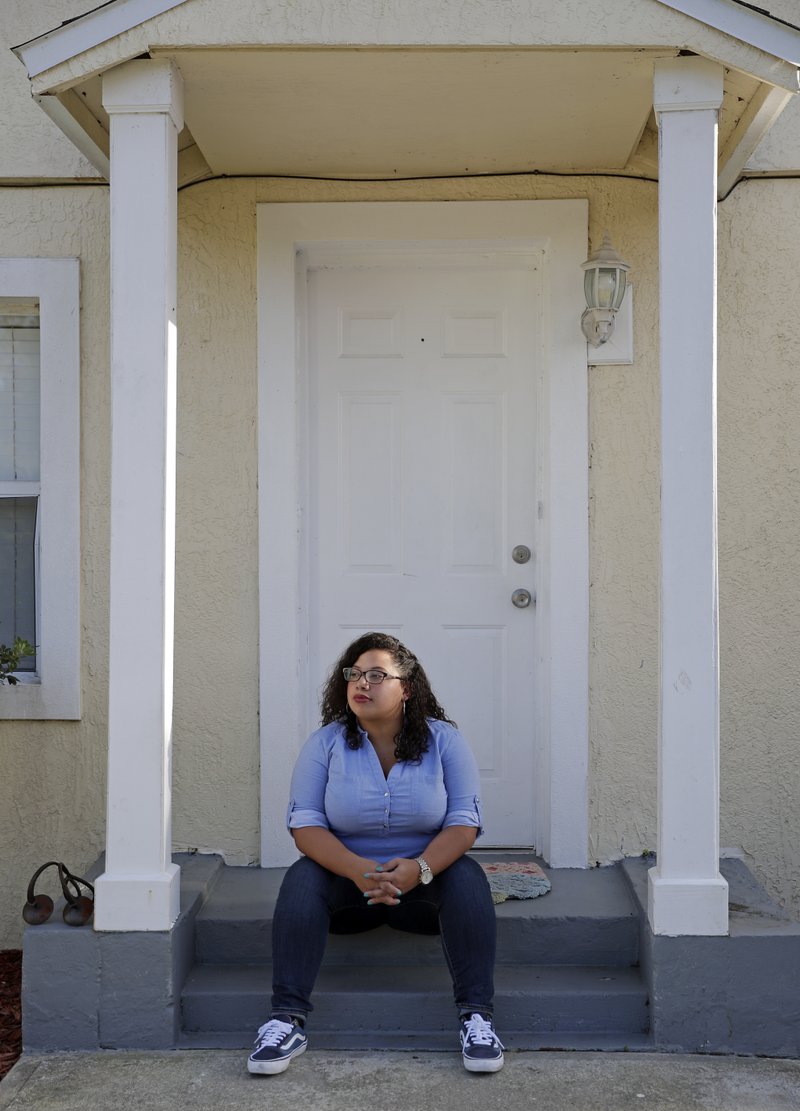MIAMI -- A bill proposed in Florida's House of Representatives would flip Florida from an abortion-notification state to a consent state, where legal guardians have the deciding power over abortions.
Florida, which provided 1,472 abortions to minors in 2017, now requires parents or guardians of minors to be informed about the procedure at least 48 hours in advance. Many clinics allow parents to sign a notification waiver in order to bypass the mandatory waiting periods.
But state Rep. Erin Grall, R-Vero Beach, said in a House Committee meeting that she suspects many parents are left in the dark about their children's decision to have an abortion and that they need to be involved.
"It is my belief that parental notification does not go far enough. It does not give parents the opportunity to weigh in the decision that child is making," Grall said.
Her bill would require physicians to obtain notarized written consent and government-issued proof of identification from a parent or legal guardian before any procedure.
"I believe that parents have a fundamental right in the upbringing of their children," Grall said. "This really seeks to put the focus back on the family in such an important decision -- a decision that cannot be undone."
Grall's bill is one of hundreds of abortion restrictions introduced into state legislatures across the country this year. Conservative lawmakers are hoping to spark challenges that will reach the Supreme Court and prompt justices to revisit Roe v. Wade.
Recently, a House Health Quality Subcommittee and Judiciary Committee voted in favor of Grall's measure. The bill is scheduled to come before a Senate Health Policy Committee today.
Although a similar law was deemed unconstitutional by the Florida Supreme Court in 1989, Republican Gov. Ron DeSantis has publicly voiced support for the bill.
DeSantis, when asked about the measure at an event last month in Miami, called the measure a matter of "common sense."
"If you're a minor and you have to get consent to do almost anything else, to me, that's very reasonable," DeSantis said.
More than 60 percent of minors in notification states discussed their decision to have an abortion with their parents, according to a Guttmacher Institute study.
Dr. Sarah Stumbar, a physician who works with predominately low-income families in Miami, said she is concerned about the percentage of minors who don't notify their parents.
"That's due to their home situation," said Stumbar, who opposes the bill. "They're concerned about physical violence, emotional violence, sexual abuse ... about getting kicked out the house and becoming homeless."
Florida law provides an alternative for minors who want to keep their parents out of the loop in the form of a judicial bypass, a hearing in which a judge decides if it's in the best interest of the minor to not have their parents involved. The judge also determines if a minor is mature enough to make such a decision.
In 2018, Florida minors filed 193 petitions, 182 of which were granted, or 94 percent, per state records. In 2017, judges approved nearly 92 percent of petitions.
Stephanie Loraine Piñeiro, now a 27-year-old social worker and advocate for reproductive rights in Orlando, was 17 when she discovered she was pregnant for the second time.
She says her parents were livid about her first pregnancy a year earlier, though she never dared tell them she was raped. Her father took her to a clinic for an abortion. On the way home, she says, he threw birth control pills from the clinic out of the car window and ordered her to abstain.
A year later, the circumstances were different. She said she became pregnant after having sex with a boyfriend and was afraid her parents would force her to continue an unwanted pregnancy if she told them. She sought but was denied emergency contraception from a pharmacy.
"I felt like I was being forced into parenthood," she said.
Loraine Pineiro learned about the judicial bypass when she was researching methods to induce a miscarriage. A lawyer took on her case, and they won. Without a ruling in her favor, her parents would have been notified ahead of the abortion, and under Grall's bill their consent would have been required.
Loraine Piñeiro said judicial bypass information is notoriously difficult to find, leaving many minors unaware of their options.
"There's no consensus across the state on where to go and what to do," she said.
The Associated Press generally does not identify those who say they've been sexually assaulted, but Loraine Piñeiro tells her story publicly as an advocate. She said that if conservative lawmakers want to eliminate the need for abortions, they should broaden sexual education for minors.
A Section on 04/08/2019

